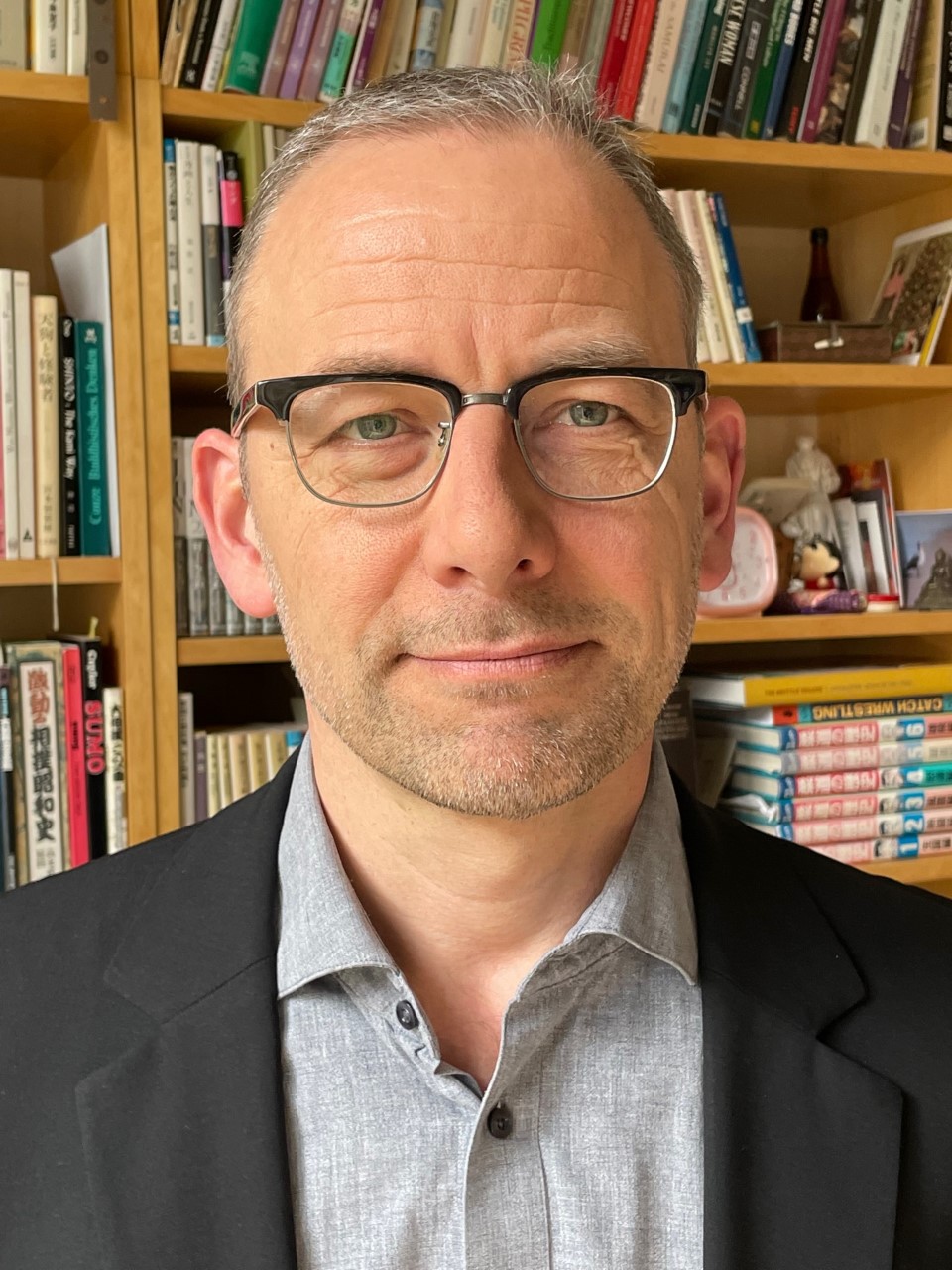Professor at the Department of Languages and Cultures at Ghent University

Statement
I am very honored and grateful to be nominated for the position of President of the EAJS. As local organizer, I was instrumental in organizing the 2021 online and 2023 hybrid international EAJS conferences in Ghent, and as member of the extended Council, I have contributed to the general work of the Council and the EAJS office since 2017. This commitment gave me a good understanding of the challenges the EAJS will be facing in the future, be it related to funding, the concerns of the (post)doctoral community, inclusiveness, or questions of sustainability in doing research and communication. The Council has already set sail to address some of these issues, and I would like to generally strengthen its current policy. At the same time, I think that we need to further reach out and disseminate European research in Japan and intensify our ties with other disciplinary fields for academic exchange and finding solutions to the abovementioned challenges. To stimulate research and exchange on these topics, we organized interdisciplinary panels on digital and environmental humanities for the 2023 conference in Ghent. For the humanities, digitization and recent developments in AI technology certainly offer interesting opportunities, but we also need to discuss the extent to which AI challenges our established way of doing research. In short, I would like to further develop the position of the EAJS as a dynamic and cooperative scientific network in which individuals, research groups, and institutions work together to increase our knowledge on Japan and Japanese culture as well as our mutual understanding in perspectives, methods, and disciplinary approaches.
CV
I received my PhD in Japanese Studies at Cologne University. Following a research stay at Keio University and a position as assistant at Cologne University, I was appointed at Ghent University in 2004. My research mainly focusses on questions of how body and body performance are formed and shaped by ideologies and political processes during the Edo- and Meiji-period. I am also founder and speaker of Ghent’s Centre for Research on Bodies in Motion (BOCULT). My main teaching obligations included courses on history, society, classical Japanese as well as research courses on MA level. In 2010, I was awarded the faculty price for “excellent and inspiring teaching”, which was followed in 2013 by Ghent University’s Minerva award for teaching. I also have broad experience in administrative appointments: in 2010, I was elected head of the Department of South and East Asian Studies and then became head of the Department of Languages and Cultures (2012-2018). For 5 years (2017-2021), I additionally served as director of the International Office of the Faculty of Arts and Philosophy and currently head the faculty’s sustainability commission. Over the years, I have established a solid network with Japanese colleagues and I am responsible for our institute’s exchange program with Japanese and Korean universities as well as research institutes. I also have been appointed “collaborative professor” at Kanazawa University (2015). I act as Ghent University’s academic liaison with the Japanese Embassy in Brussels and have been invited to be member of several scholarship commissions, including MEXT scholarships for Japanese study students and graduate studies, JET program and for the Korean GKS scholarship.
For more details see https://research.flw.ugent.be/en/andreas.niehaus
Publications
“‘I want to bring this light to those in despair’ – The Tokyo 2020 Torch Relay and the Creation of Olympic Legacies.” In: Contemporary Japan. Vol. 35, Issue, 2, 2023, 69-87 (accepted).
“Menboku wo aratameru? Shingata korona wairusu to Berugii ni okeru nihongaku no genzai to shōrai.” In: After/ With corona no ‘kokusai Nihon kenkyū’ – Yoroppa kara no hōkoku. Kyōto: Nichibunken 2022, 95-102.
“From Olympic Sport to UNESCO Intangible Cultural Heritage: Okinawa Karate Between Local, National, and International Identities in Contemporary Japan.” In: KEUM Gi Hyung, PARK Chang Hyun (eds.): Traditional Martial Arts as Intangible Heritage. Jeonju, Chungju: ICHCAP, ICM (= Living HeritageSeries) 2020, 40-54 (together with Eduardo González de la Fuente).
Leben und Werk Kanō Jigorōs. Judo – Sport – Erziehung [Life and Work of Kanō Jigorō. Judo – Sport – Education]. Würzburg: Ergon Verlag 2019 (= Sport, Kultur und Gesellschaft Vol. 6; third extended and revised edition).
“‘They Should Be Called Gluttons and Be Despised’: Food, Body and Ideology in Kaibara Ekiken’s Yōjōkun (1713).” In: Niehaus, Andreas; Walravens, Tine (eds.): Feeding Japan: Cultures and Politics of Food Identities. London: Macmillan 2017, 19-51.

